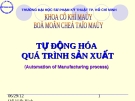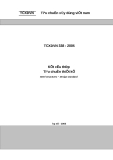Tài liệu Thư viện số
- Giáo trình SPKT (422 )
- Luận văn, luận án (2957 )
- Đồ án, khóa luận tốt nghiệp (10501 )
- Tài liệu tham khảo (1350 )
- BC nghiên cứu khoa học (1587 )
- Kỷ yếu hội thảo (12 )
- Tạp chí khoa học (62 )
- Luật (349 )
- Cơ khí chế tạo máy (2345 )
- Điện - Điện tử (4378 )
- Cơ khí động lực (1242 )
- Xây dựng - Kiến trúc (3233 )
- Thực phẩm, Môi trường (1083 )
- Công nghệ thông tin (3074 )
- Kinh tế - Quản lý (4138 )
- In - Truyền thông (382 )
- CN May - thời trang (832 )
- Nghệ thuật - Ẩm thực (1516 )
- Nông - Lâm - Ngư Nghiệp (763 )
- Y học - Sức khỏe (620 )
- Khoa học xã hội (3535 )
- Lịch sử - Địa lý - Du lịch (492 )
- Khoa học tự nhiên (2101 )
- Văn học (2585 )
- Ngôn ngữ (4289 )
- Khoa học ứng dụng (406 )
- Thông tin Tuyển sinh (61 )
- Thông tin -Thư viện (418 )
- Thể loại khác (1376 )
Danh mục TaiLieu.VN
- Mẫu Slide Powerpoint
- Kinh Doanh Marketing (39320)
- Kinh Tế - Quản Lý (30571)
- Biểu Mẫu - Văn Bản (123435)
- Tài Chính - Ngân Hàng (23744)
- Công Nghệ Thông Tin (56521)
- Tiếng Anh - Ngoại Ngữ (9738)
- Kỹ Thuật - Công Nghệ (44193)
- Khoa Học Tự Nhiên (27343)
- Khoa Học Xã Hội (43227)
- Luật - Kinh tế luật (6560)
- Văn Hoá - Thể thao - Du Lịch (71283)
- Y - Dược - Sức Khoẻ (83234)
- Nông - Lâm - Thuỷ sản (16418)
- Luận Văn - Báo Cáo (217024)
- Tài Liệu Phổ Thông (244133)
- Trắc Nghiệm Online (213578)
- Trắc Nghiệm MBTI
- Trắc Nghiệm Holland
Process control : the passive systems approach
Process Control introduces an emerging area in process control - control system analysis and design based on the concept of passive systems. Passive systems are a class of processes that dissipate certain types of physical or virtual energy, defined by Lyapunov-like functions. Passivity and associated stability conditions form one of the cornerstones in control theory and have recently begun to be applied in process control. Defined as an input-output property, the concept of passivity implies stability conditions for interconnected systems. Passive systems are minimum phase and thus very easy to control via output feedback, even if they are highly nonlinear and coupled. Therefore, the passivity framework can be used in process input-output controllability analysis as well as control design. Here, the concept of passive systems is also linked to process thermodynamics to provide process engineers with insights into the physical bases of the above results. In this book, passivity-based developments in the areas of robust process control, decentralized control, fault tolerant control, process controllability analysis and nonlinear process control are addressed systematically for the first time. Written for the industrial, engineering and academic communities, the emphasis is placed on results that enhance insight and intuition. Application issues are illustrated by case studies in all the main chapters. MATLAB® routines for selected examples and a library of functions that implement the system analysis and control design methods developed in Process Control can be downloaded from springer.com. This book presents the reader with both the conceptual framework and practical tools for passivity-based system analysis and control.
Từ khóa: Passivity-based control, Process control
14 p ovanketv4 10/08/2020 432 2
Bạn đang xem trang mẫu tài liệu này.







